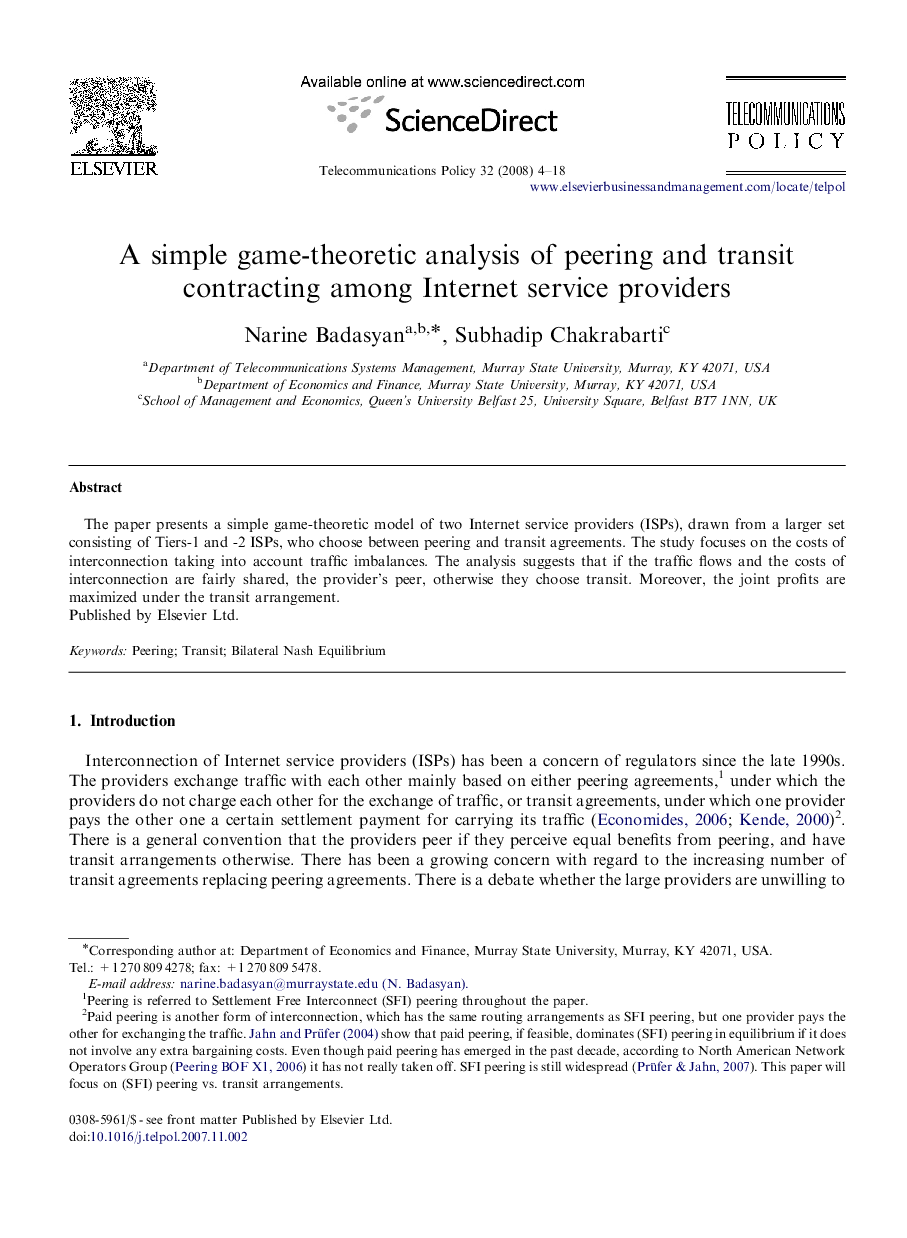| Article ID | Journal | Published Year | Pages | File Type |
|---|---|---|---|---|
| 557007 | Telecommunications Policy | 2008 | 15 Pages |
Abstract
The paper presents a simple game-theoretic model of two Internet service providers (ISPs), drawn from a larger set consisting of Tiers-1 and -2 ISPs, who choose between peering and transit agreements. The study focuses on the costs of interconnection taking into account traffic imbalances. The analysis suggests that if the traffic flows and the costs of interconnection are fairly shared, the provider's peer, otherwise they choose transit. Moreover, the joint profits are maximized under the transit arrangement.
Related Topics
Physical Sciences and Engineering
Computer Science
Information Systems
Authors
Narine Badasyan, Subhadip Chakrabarti,
